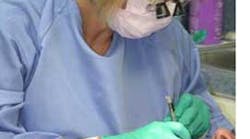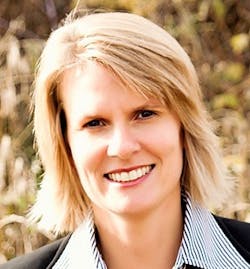Connecting the oral and systemic gap: what's it going to take?
With so many medically compromised patients taking alarming amounts of pharmaceutical agents and still others making unhealthy lifestyle choices, dentists have an opportunity of a lifetime to broaden the public’s image of what a dentist does. But, will we?
I hear the argument that it’s too much effort to do the extra stuff (such as incorporating nutrition counseling or doing in-depth health exams) and not get reimbursed for it.
I believe this is short-term thinking.
RELATED |Enough talk about the oral-systemic link: It's time to bridge the gap between dentistry and medicine
Being reimbursed, in an insurance sense, is only part of how dentists get reimbursed. Reimbursement comes from patients referring us their friends and family members; it comes from having patients stay in our practices (high retention rates); and even some reimbursement comes in the form of joyously providing services to other fellow human beings.
So, are we going to let not getting reimbursed from a dental agency keep us from expanding our usefulness?
In my opinion, we should think differently about our image and the services we can provide. Here are my top reasons why:
1. It’s the right thing to do. We have the knowledge. We can identify signs from our patients’ teeth and the oral cavity that are linked to systemic diseases. We can connect the dots with them (and be taught to do more of this). If we see a fissured tongue and realize a patient is sick, would we ignore a possible scurvy diagnosis? Why are we ignoring stress, anxiety, and depression that are identifiable by oral biomarkers? We can do more. But, will we?
2.It adds value to the patient experience. Patients are looking for added value to their dental experience. To the average layperson, anyone can drill and fill a tooth. But, when we take an in-depth health history and find an early indicator of cancer or discover another medical/dental correlation, Dr. Anybody does not seem as capable. We have to remind patients (and other influencers) of our qualifications and abilities to think beyond 32 teeth so that we can counter the notion of any set of hands will do. But, will we?
3.It adds value and credibility to the profession of dentistry. Expanding our role is an opportunity of a lifetime! Patients are hungry for someone … anyone … to guide them in the right direction. Many have lost faith in the medical world. Just check out the stats of those seeking alternative medical providers and medications. It’s astounding. Dentists are positioned perfectly to become guides and work collaboratively with forward thinking physicians, naturopaths, counselors, and nutritionists in a complex medical world. But, will we?
4.We become more trustworthy in our patients’ eyes. When we look at our patients as complete whole people, we can earn our patients’ trust by being interested in something above and beyond their set of teeth. (Trust = case acceptance). An example would be the perpetual caries patient with diabetes who is obese and suffers from depression. Wouldn’t nutritional counseling and regular exercise help address all of these issues? By working together with other health professionals, we no longer have to “piecemeal” their health back together. But, will we?
5.We must think broadly for the future of our profession. With the incredible amount of corporate influence taking place in health care, we must be the voice for patient care. We are the ones in the trenches and know our patients’ needs and know how long it takes to deliver the care. If we do not start recognizing our role in the big picture of health care, we will be run over by corporate or legislative interests and become a cog in the wheel with little control over the delivery of dental care. But, will we?
We can keep on doing the same thing in dentistry, or we can evolve. It’s our choice and our fate. I want to have the freedom to practice with my patients’ interest in mind and not feel pressured to provide the type of care that is decided by someone three states removed wearing a shirt and tie. I am certain my patients want that too. But, we have to look up more often — as a unified voice representing our patients and ourselves. We have to be willing to expand our thinking as it pertains to what a dentist really does — and can do.
RELATED |Are dentists interested in the oral-systemic disease connection?
As we are drilling away, many, many others are thinking of ways to become more profitable in THEIR dental affiliated companies, not ours. Our public relations campaign, including our image profile — at a national, state and local level — needs to be expanded and revamped. But, will we?
I am fortunate to hold a communication degree and a dental degree. I see things through a different lens. As people like me step forward to help make the changes and offer advice on how this can happen in individual practices, for our patients’ sake and for our profession’s sake, I know “will we” will become “will they” — and the next group of health-care providers will be questioning how they can become part of the health-care transformation. The body is all connected. Now, it’s time the medical community learns to be too. We have dissected it all apart, figured many things out. Now, it’s time to put all of the pieces back together again. This will not be cheap nor fast, but it will be better for patient care.








